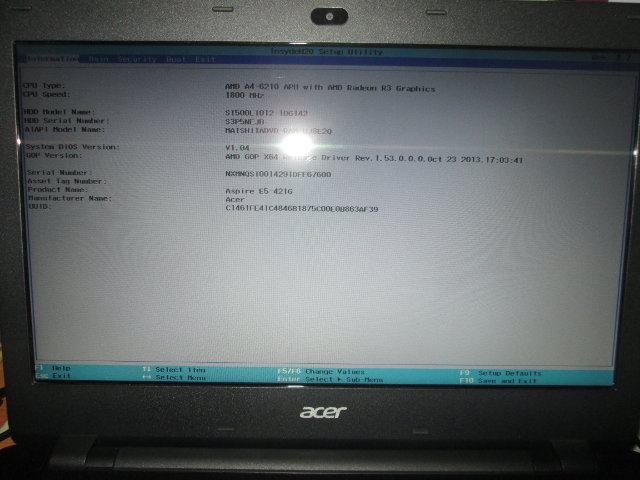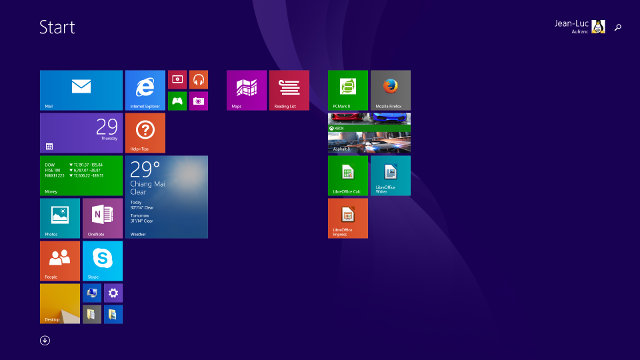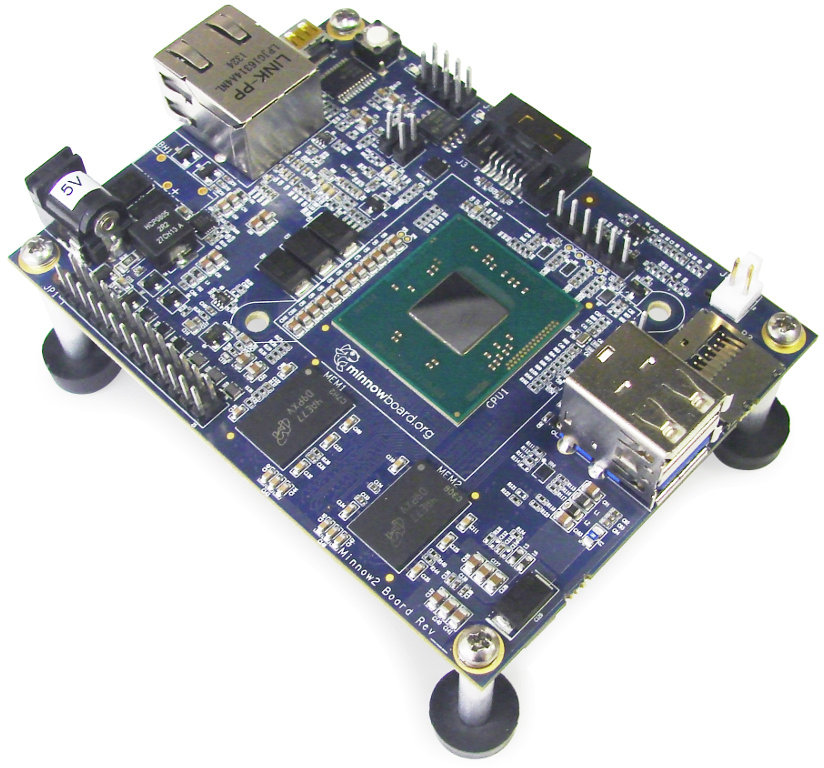Yesterday, I bought an Acer Aspire E5-421G-45L0 laptop powered by AMD A4-6210 “Beema” processor and after some effort I managed to install Ubuntu 14.04 and make it mostly work, but more on that later. I also planned to copy a 64-bit OS VirtualBox virtual machine from another PC to this PC, but I quickly realized I could only select 32-bit operating systems, so my 64-bit image could not boot. Virtualization extension are required for 64-bit support in VirtualBox, and I had not checked whether AMD A4-6210 supported these before purchase. Amazingly, I could not find that information on AMD’s very own website, but CPU Boss reports A4-6210 does indeed support AMD-V virtualization. All good, so I must be just a question of enabling it in the “BIOS”. So I rebooted the laptop, and pressed F2 to enter InsydeH20 Setup Utility. There are few options with only Information, Main, Security, Boot, […]
HiSilicon D02 Server Board Supports up to 64 ARM Cortex A57 Cores
HiSilicon has showcased their latest server SoC and board at Linaro Connect Hong Kong 2015, with up to two processors with 32 Cortex A57 cores @ 2.1GHz, 8 DIMM DDR3 slots (up to 128 GB RAM), 12 SATA ports, 4 PCIe slots, 10GbE / GbE ports. D02 board specifications: SoC – Hisilicon PhosphorV660 Hip05 with 16 to 32 ARM Cortex-A57 cores @ up to 2.1GHz and 1MB L2 cache/cluster, 32MB L3 cache System Memory – 2x Memory channel 4x DDR3 DIMM(4x DIMM per processor) Storage 12x SAS 3.0 ports @ 12 Gbps (8 for the first processor, 4 for the second). SAS port are compatible with SATA drives. You may want to read SAS vs SATA post for more details about SAS. 2x SPI Flash 158Mb BIOS/UEFI 1Gb NorFlash Connectivity – 2×10/100/1000Mbit/s Gigabit Ethernet ports, 2x xGE SFP+ ports (10Gb/s) Expansion – 2x 8x PCI express interfaces per processor (4 […]
MeLE PCG03 mini PC Review and Benchmarks with Windows 8.1 with Bing
MeLE PCG03 is an Intel Atom Z3735F mini PC with 2GB RAM, and 32GB eMMC. I’ve already posted some pictures of the device and board, and since Windows 8.1 with Bing NTE (with proper license) is installed, I’ll first test the device with Microsoft OS as a reference, before trying Ubuntu or/and Android. MeLE PCG03 Setup The computer comes only with a power adapter, so you’ll need to find an HDMI or/and VGA cable for your display(s), and a USB keyboard and mouse to get started. Optionally, you’ll also want an Ethernet cable, and since storage is limited an extra storage device be it a USB hard drive, flash drive, or SD card. Once all is connected you can press the power button on the left side to boot the device. The boot normally takes about 20 seconds, but the first time, you’ll go through the usual Windows 8.1 setup […]
Linaro 14.12 Release with Linux 3.18 and Android 5.0
Linaro usually releases images and source code on the last Thursday of the month, but since most people will have long holidays for Chritsmas and New Year, the last working Thrusday of this month was yesterday (18th). Linaro 14.12 release includes Linux kernel 3.18 (baseline), Linux 3.10.62 & 3.14.26 (LSK, same versions as last month), and Android 5.0.1 Lollipop. Here are the highlights of this release: Linux Linaro 3.18-2014.12 Based on v3.18 release GATOR topic: version 5.20 updated topic from Qualcomm LT (includes IFC6410 board support) updated integration-linaro-vexpress64 topic by ARM LT (FVP Base and Foundation models, and Juno support) updated LLVM topic (uses the community llvmlinux-latest branch) included ILP32 patch set v3 rebased on 3.18. Boot tested with aarch64 userland. Work is in progress to test with aarch64-ilp32 userland. config fragments updated – SELinux related config options enabled in linaro-base.conf, device tree runtime self tests enabled in distribution.conf Linaro […]
Linaro 14.10 Release with Kernel 3.17 and Android 4.4.4, Debian ARM64 Port Almost Complete
Linaro 14.10 has just been released with Linux kernel 3.17 (baseline), Linux 3.10.54 & 3.14.19 (LSK, same versions as last month), and Android 4.4.2 & 4.4.4. Most of the work is a continuation of previous months working member hardware, and ARM64, but one particularly interesting point is that 90% of Debian packages have been built for ARM64, and the next version of Debian should have an official ARM64 port. Here are the highlights of this release: Linux Linaro 3.17-2014.10 updated linaro-android topic. In particular, CONFIG_IPV6=y is no longer the requirement for linux-linaro tree builds GATOR version 5.19 (same version as in 2014.08 release). gatord is fixed to build for ARMv8. dropped multi_pmu_v2 topic by ARM LT (no longer used) updated topic from Qualcomm LT (include IFC6410 board support) replaced integration-linaro-vexpress topic by integration-linaro-vexpress64. Starting from 2014.10 release, linux-linaro kernel tree will use the mainline support for 32-bit vexpress boards. integration-linaro-vexpress64 […]
Linux 3.16 Released
Linus Torvalds announced the release of Linux Kernel 3.16 over the week-end: So nothing particularly exciting happened this week, and 3.16 is out there. And as usual (previous release being the exception) that means that the merge window for 3.17 is obviously open. And for the third time in a row, the timing sucks for me, as I have travel coming up the second week of the merge window. Many other core developers will be traveling too, since it’s just before the kernel summit in Chicago. So we’ll see how the next merge window goes, but I’m not going to worry about it overmuch. If I end up not having time to do all the merges, I might delay things into the week of the kernel summit, but I’ll hope to get most of the big merging done this upcoming week before any travel takes place, so maybe it won’t come […]
Linux 3.15 Released
Linus Torvalds announced the release of Linux Kernel 3.15 last Sunday: So I ended up doing an rc8 because I was a bit worried about some last-minute dcache fixes, but it turns out that nobody seemed to even notice those. We did have other issues during the week, though, so it was just as well. The futex fixes and cleanups may stand out, but as usual there’s various other random fixes since rc8 in there too: mainly drivers (drm, networking, sound, usb etc), networking, scheduling and perf tooling. But it’s all been fairly small and quiet, which *may* of course be due to the fact that last week was also the first week of the merge window for 3.16. That might have distracted some developers. I’m not entirely convinced I liked the overlap, but it seemed to work ok, and unless people scream really loudly (“Please don’t _ever_ do that again”) and give good […]
$99 MinnowBoard MAX Development Board Powered by Intel Bay Trail-I SoC
When Intel released the original MinnowBoard which was a step in the right direction, but there were some complains, as the company had chosen to use an older Intel processor, and the price was much higher than most high performance low cost ARM development boards. MinnowBoard MAX (aka Minnow2 Board) fixes all that, as it features the latest Intel Bay Trail-I (E3800 series) processor, and costs as low as $99 for the single core version, and $129 for the dual core version. Let’s jump directly to the specifications: SoC – 64-bit Intel Atom E3815 (single-core, 1.46 GHz) or Atom E3825 (dual-core, 1.33 GHz) both with integrated Intel HD Graphics coming with Open Source hardware-accelerated drivers for Linux OS System Memory – 1GB ($99 model) or 2GB ($129 model) DDR3 RAM Storage – 1x Micro SD card slot, 1x SATA2 3Gb/sec, 8 MB SPI Flash for firmware (UEFI) Video Output – micro […]





